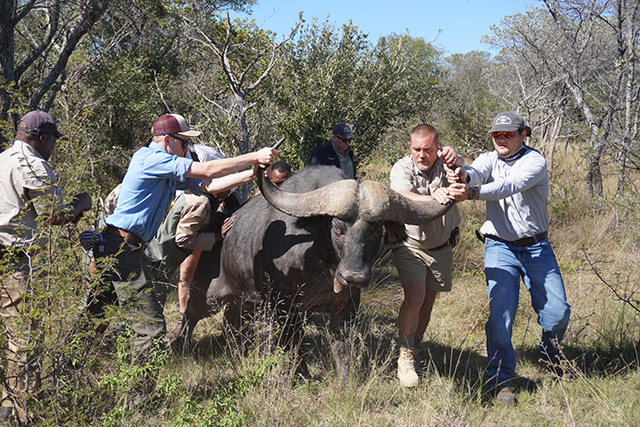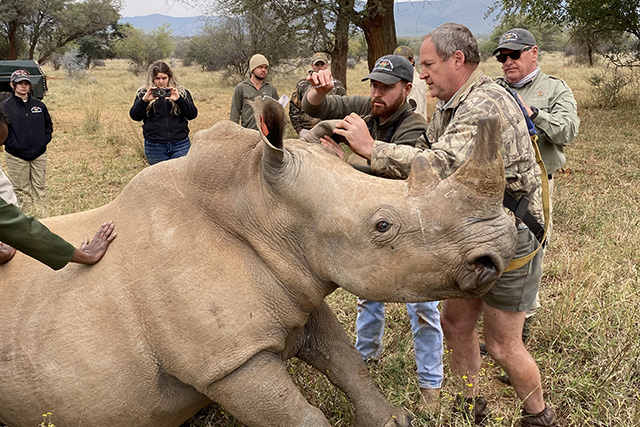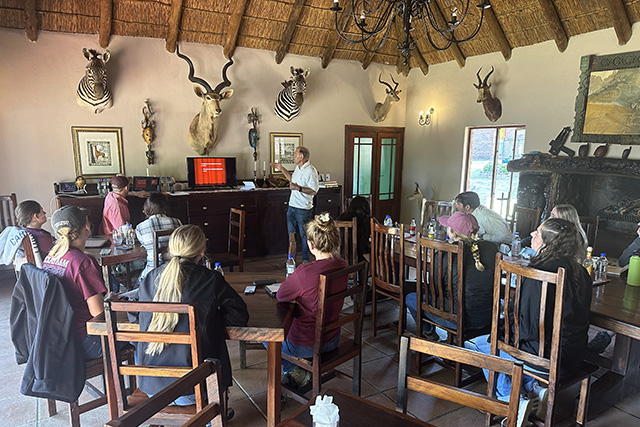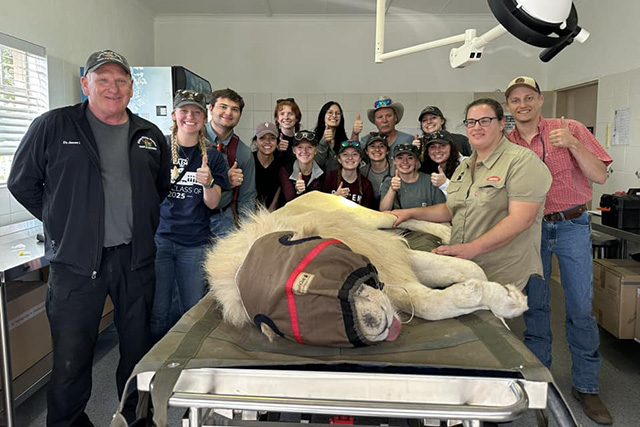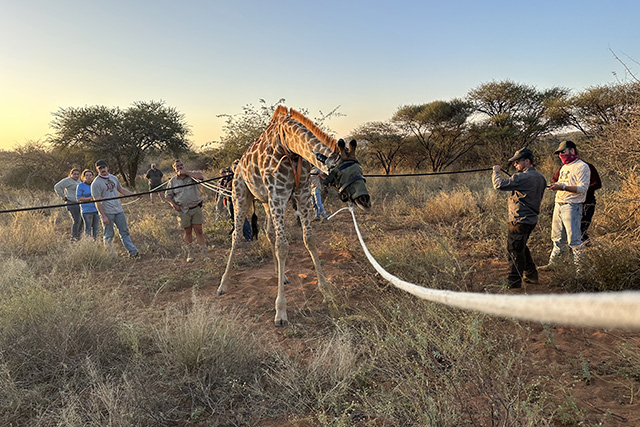Texas A&M Education Abroad Opportunity
African Wildlife Medicine (AWM)
Faculty: Dr. James Derr & Dr. Walter Cook
Eligibility: Undergraduate, graduate, and veterinary students are eligible.
Description: This experience gives students an appreciation for the role of veterinarians in large landscape wildlife conservation medicine and develops skills they can apply to wildlife health and sustainability issues. Experts guide participants through animal restraint, drug administration, field surgery, and darting. Other experiential learning could include interaction with crocodiles, buffalo, and rhinos. Two sections with different dates are offered. Learn more about Track 1 and Track 2.
Video Title: Texas A&M Education Abroad: African Wildlife Medicine Kudu Care Recap
Video Description: Anna, a Texas A&M AWM Summer 2023 cohort student, recaps veterinary care the team provided to a Kudu male.
Video Dialog:
- Interviewer: “Okay, Anna, what did we just do?”
- Anna: “So, we just darted and captured a kudu male and then we did some treatments for him. I gave him some vitamins and some injections and as well as put an ear tracker on his ear. So, yeah. It’s really fun.”
Credit: All students must take 4 credit hours to participate.
- VTPB 948: Didactic Elective: African Wildlife Medicine (4 credit hours)
- VTPB 485: Directed Studies: South Africa (4 credit hours)
- VTMI 689: Special Topics in African Wildlife Medicine (4 credit hours)
Past Cohort Facebook Pages
